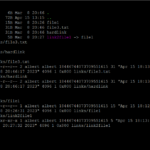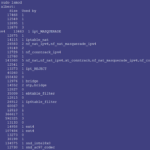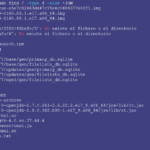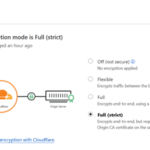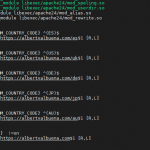Symbolic and Hard Links are useful ways to reference to information on a disk, both found in UNIX and Linux systems. While they seem similar in the surface they are quite different in how they work and it what can be achieved when using them. If you find the articles in Adminbyaccident.com useful to you, please consider making a donation. Use this link to get $200 credit at … [Read more...]
How to load and unload kernel modules in Linux
Kernel modules permit enabling hardware features on a given system. For example, if we need to read from a particular filesystem from a hard drive, we need to load a particular kernel module. Or use a specific network card, a sound card or sound device, a video display, etc. This is mostly done automatically in many instances but knowing how to load and unload kernel modules in … [Read more...]
How to use find in GNU/Linux and FreeBSD
How to use find is a very basic, but important, UNIX lesson. Find is a very useful command which can help us not just finding a particular file, but for examples files or directories matching certain criteria such as: size, permissions, type. The basic mode of operation for find is the following: find path criteria action find --> we use 'find' to invoke the … [Read more...]
How to enable TLS traffic from the origin server on Cloudflare Argo Tunnel
As it can be read in the last post, setting up a Cloudflare Argo Tunnel to serve web content from home or corporate network without poking holes to it, is quite easy to achieve. In this article I’ll show you how to enable TLS traffic from the origin server on Cloudflare Argo Tunnel. Obviously, you will want to serve your content at the edge server with TLS enabled too, but … [Read more...]
How to manage site visitors based on IP Geolocation
Whenever someone publishes a website on the internet, most of the times, their intention is that site to be seen around the globe. However, as a site administrator you may want to divert users from one country to visit some specific version of that site, maybe because of the visitor’s language. Other times, less often but nonetheless a viable and valid approach, for some … [Read more...]
